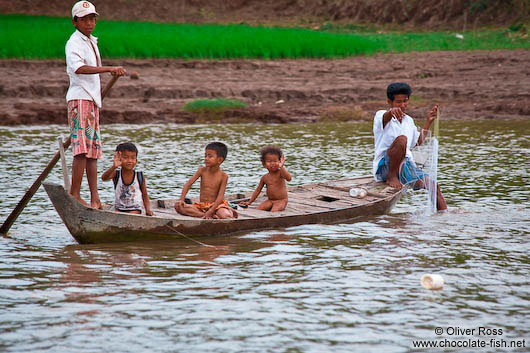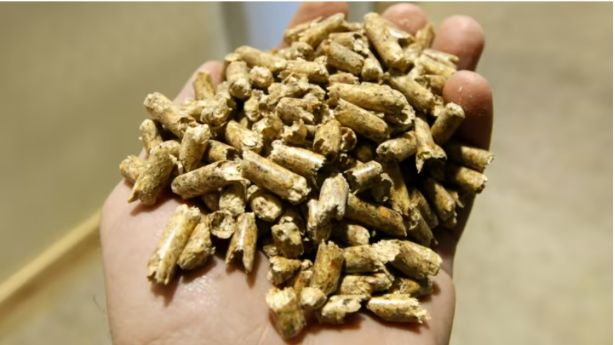Hanoi, November 5, 2024 – Believing that music can become a bridge to promote environmental actions, Cuon Hood Entertainment launched the music video (MV) "Uom Mam Xanh" (Nurturing Green Shoots) and the project of the same name to spread love for nature, responsibility towards the environment, and community engagement among young people. Recognizing the growing environmental pollution and the severe impacts of climate change, such as droughts, storms, and extreme weather conditions affecting people’s lives, and inspired by long-lasting forest restoration initiatives such as "Regreening Forests" and "For a Green and Sustainable Vietnam" campaign, Cuon Hood Entertainment’s youth group has launched a project that connects music with environmental protection actions.

Concerns on Don Sahong Dam Prior Consultation Process
On 10 September 2014, the Save the Mekong Coalition (StM)sent a letter to the regional Prime Ministers urging them to halt the Prior Consultation process for the Don Sahong Dam and addressing flaws in the PNPCA.
In the letter, StM expressed their concern regarding the decision-making process for the Don Sahong Dam, in southern Lao PDR. This relates to the recent submission by the Government of Laos, of the Don Sahong Dam for Prior Consultation under the Procedures for Notification, Prior Consultation and Agreement (PNPCA). StM concerned that, as they stand, the PNPCA procedures cannot allow for a legitimate and participatory consultation process for the Don Sahon Dam, and the project is set to follow the same destructive path of the Xayaburi Dam, bringing further severe impacts to the Mekong and its people.
Many studies have shown that, if built, the Don Sahong Dam will have severe impacts on Mekong fish and their migration throughout the Lower Mekong River Basin. This threatens the food security and livelihoods of millions of people, as well as the economic and political stability of the region, due to increased tension between governments over the failures of regional cooperation. Despite this, Laos has insisted on moving forward with construction on the Don Sahong Dam, and even when submitting the project for Prior Consultation, has made clear its intentions to continue developing the project. Recent media coverage of the status of ongoing construction at the Don Sahong Dam site supports these concerns, as the Government of Laos has claimed that construction has halted, while Mega First Corporation Berhad, the company responsible for developing the project claims that construction is continuing. Submission of the Don Sahong Dam for Prior Consultation must not be used as a way for Laos to legitimize their actions under the 1995 Mekong Agreement, but rather ensure a true commitment to regional decision-making in good faith, in the spirit of the Mekong Agreement.
It is now widely acknowledged that the Xayaburi Dam’s Prior Consultation process was a failure. The limited stakeholder consultation both in number of participants and areas involved excluded many critical voices, including those of local communities in Cambodia, Laos, Thailand and Vietnam. While many groups in Vietnam and Cambodia voiced their dissatisfaction about the lack of participation in the process, affected local communities in Thailand insisted that they were not ‘consulted’ in the meetings organized in Thailand, and instead only received some initial information. They believe there is no legitimacy in the PNPCA procedures and continue to say “no” to the Xayaburi Dam.
Those who attended the consultations reported that little or no information was provided about the details and impacts of the project. The final Environmental Impact Assessment (EIA) was not made public, no transboundary impact assessment was carried out, and the dam designs were not complete. The legitimacy of the entire process was undermined when the Governments of Laos and Thailand decided to move forward with construction of the Xayaburi Dam, despite there being no resolution to the Prior Consultation, no response to concerns raised by Cambodia and Vietnam and no Agreement between the four governments to proceed with the project.
On June 24, 2014, Thailand’s Supreme Administrative Court accepted a lawsuit filed by villagers in North and Northeastern Thailand who would be affected by the Xayaburi Dam, acknowledging in their ruling the potential transboundary impacts of the Xayaburi Dam and calling for further environmental, health and social impact assessments in Thailand. Recommendations by both Cambodia and Vietnam have called for a delay in further decisions on Mekong mainstream dams until the completion of the MRC Council Study and the Mekong Delta Study. And at the Second Mekong Summit in April this year, Vietnam re-iterated the recommendation of the MRC’s 2010 Strategic Environmental Assessment, calling for a 10-year moratorium on all dam building on the Mekong mainstream. Such recommendations demonstrate that decisions over the future of dams on the Mekong mainstream must be based on comprehensive study and understanding of the impacts to all Mekong countries.
Donors to the MRC have also expressed serious concerns about the efficacy and legitimacy of the PNPCA process, including the Australian Government, who funded the Xayaburi Dam’s Prior Consultation process as well as a review of it, and the Danish Government. Recognizing the inadequacies in Xayaburi Dam’s Prior Consultation process, the MRC Secretariat has also sought to review the PNPCA with a view to “”considering extension of the six-month PC period, establishing criteria for Agreement after the PC process, and reaching a common understanding of how the PNPCA should be interpreted in the context of the 1995 Agreement.”
Despite the review being proposed more than a year ago, these issues remain unresolved. Yet, the Don Sahong Dam, which poses a critical threat to the future of the Mekong River, is being submitted for Prior Consultation and likely to follow the same failed decision-making process as that of Xayaburi Dam.
Therefore, StM call on Mekong leaders to immediately halt the Prior Consultation process for the Don Sahong Dam and address critical flaws in the PNPCA, that act as barriers to participatory and informed consultation and agreement of affected communities, and allow more time for studies on the impacts of mainstream dams to be completed.
The voices of communities must be the priority in any process related to the development of dams on the Mekong River. As the MRC’s mandate is not for local Mekong communities, there needs to be clarification on how local communities affected by Mekong dams can meaningfully participate in the decision making process and how their participation will inform decisions made about whether or not a project will proceed. The right of communities to reject a project must be recognized.
The MRC and the member governments have to recognize that, any kind of consultation process with participation of communities and the Mekong public on Mekong dams should at a minimum, include the following criteria, including;
• Consultation must take place before the decision to proceed with a project. No construction should take place and no agreements should be signed during the consultation process.
• Clear criteria for decision making about the design, scope and scale of the project, as well as the ecological viability of the project, should be developed and made public before the consultation. These criteria should be updated based on the information generated through the consultations.
• MRC member governments must clearly state their commitment at the outset of the process, to ensure agreement between all four countries – based on participatory consultation – on how to proceed.
• Sufficient information, including a transboundary EIA and final project designs must be released well in advance of consultations. All relevant information must be made available in the national language of all riparian countries and all materials should be peer reviewed to ensure objectivity.
• It is the responsibility of the National Mekong Committees to ensure the adequate representation of communities during consultations. Every community along the Mekong River must be invited to take part in the consultations. Sufficient resources must be provided by the MRC, its member governments and/or development partners to enable meaningful participation from diverse communities and the Mekong public.
• The responses and concerns raised by communities and the Mekong public must be transparently addressed and clear criteria laid out for how these opinions inform the final decision-making process.
• The process and standard for consultations must be the same throughout the region to ensure that the concerns of all countries are raised, recorded and considered equally; this can be ensured by engaging a third party to oversee and monitor this process.
The Save the Mekong Coalition believe that a healthy Mekong River is vital to the prosperity and sustainability of the region. The leaders to urgently consider the existing and future impacts of dams on the Mekong River and prioritize and protect the rights of Mekong communities to meaningful consultation and participation is regarding dams on the Mekong River.
Read full the letter in English, Lao, Vietnamese, Khmer, Thai.



